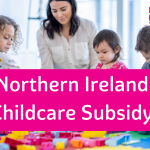What does today’s UK Budget – aimed at building a Stronger Economy – mean for families?
Today (27 October 2021) Chancellor Rishi Sunak outlined his plans to deliver a stronger economy when he delivered his second Budget of 2021. It comes on the same day as the results of a spending review, which details how the Government plans to fund public services for the next three years.
The Chancellor struck a confident, optimistic tone and said that the economy is now “firmly back on track” following the impact of the Covid-19 pandemic, and that today’s Budget has provided an opportunity to invest in a new ‘post-Covid’ economy with a focus on infrastructure, innovation, skills and public services, that will ‘level up’ prosperity across the UK.
There were some significant and welcome announcements, particularly for lower income workers, however we are concerned that many families who are facing increased costs during a difficult winter won’t feel like they are “back on track” or that “levelling up” has delivered for them.
Some key points:
- a rise in the National Living Wage to £9.50 per hour from April 2022 for those over 23
- a £500 increase to the Universal Credit Work Allowance
- a reduction in the taper rate under Universal Credit from 63p to 55p meaning those working and claiming Universal Credit will keep more of what they earn
- an increase of £1.6 billion in funding for Northern Ireland – to be allocated by local Executive Ministers
- a freeze on fuel duty
- planned rise in the duty on spirits, wine, cider and beer cancelled.
There were no measures announced to assist households with rising domestic gas and electricity bills – the Chancellor pointed to rising global demand for energy as one of the key drivers behind inflation, which is expected to rise to 4% next year.
Read the full detail on today’s Budget on the Government’s website here.
It is important to note that some parts of the Budget impact the whole of the UK while in other areas, such as education, the announcements affect England only because education policy is devolved to the Northern Ireland Executive and the Welsh and Scottish Governments. Where extra spending is announced on areas that affect England only, the devolved nations are allocated an equivalent sum of money using a formula known as the Barnett formula – it is up to Ministers in the devolved governments to decide how this money is allocated.
National Living and Minimum Wages
From April 2022 there will be an increase in the National Living and Minimum Wages across the UK. The National Living Wage will increase from £8.91 to £9.50 an hour.
The rates are set out below:
- £9.50 per hour for workers aged 23 years and over – National Living Wage
- £9.18 per hour for workers aged 21-22 years
- £6.83 per hour for workers aged 18-20 years
- £4.81 per hour for all workers under the age of 18, who are no longer of compulsory school age
- £4.81 per hour for apprentices under 19, or for first year apprentices aged 19 or over.
This will be a welcome uplift for workers, particularly alongside the reduction in the Universal Credit taper, but will not fully compensate for the £20 cut to Universal Credit, together with rising costs for heating, lighting, electricity and food. Additionally, many will be concerned about the impact of the increase in National Insurance from April 2022.
There will also be challenges for employers in implementing these uplifts without further support from Government. For example, within group childcare settings, where salaries account for a significant proportion of costs, this is likely to cause real concern about where funding will come from. This increase in salary costs will put further strain on a sector that is already struggling, and could result in an increase in fees for parents, precisely when the Government has committed to tackling the rising cost of living for families. It could also compound existing difficulties within the sector regarding the recruitment and retention of staff, and result in some providers having to cut the number of childcare places they can offer.
Support for parents, children and childcare providers in England
An additional £500 million has been allocated to support parents and children in England including:
- £200 million to support families with complex issues
- £82 million to fund family support centres
- £100 million for mental health support for expectant parents
- £50 million for breastfeeding support.
The Chancellor also pledged to spend an additional £170 million by 2024/25 to increase payments to childcare providers in England, and a further £150 million to support training and development for the early years workforce. While an increase in funding is welcome, the level of support has been referred to by Neil Leitch, Chief Executive of the Early Years Alliance as a “missed opportunity” to invest in ensuring childcare providers in England can deliver affordable, accessible, quality care and early education without risking their own sustainability. He says “extra pennies simply aren’t going to cut it” in meeting the shortfall of funding for the sector.
We are urging the Northern Ireland Executive to ensure that money allocated through the block grant as a result of this funding pledge for England is used to deliver a new, ambitious Childcare Strategy for Northern Ireland as a matter of urgency.
Given the critical role of childcare in helping to give children and young people the best start in life, enabling parents to get into and progress in work, and growing our economy – there is little scope for ‘levelling up’ without this investment.
Universal Credit
While falling short of reversing the £20 cut to Universal Credit, the Chancellor did make several important and welcome announcements for those who are working and are in receipt of Universal Credit:
- Increase of £500 per year to the Universal Credit Work Allowance: This increases the amount that households with children or a household member with limited capability for work can earn before their Universal Credit award begins to be reduced.
- Reduction in the Universal Credit taper rate from 63% to 55%: This means Universal Credit claimants who are working will be able to keep an additional 8p for every £1 of net income they earn. At present, workers receiving Universal Credit lose 63p in benefits for every extra pound they earn.
Referring to the Universal Credit taper rate as a “tax on work” the Chancellor emphasised that these developments are designed to ensure that work pays, and to help some of the lowest income families.
Importantly, these changes will take effect as soon as possible, and no later than 1 December 2021, rather than from the beginning of the new tax year. Together, these measures mark an improvement to the Universal Credit system and are a positive step for working families, allowing low-paid workers to keep more of what they earn.
However, those who are between jobs, looking for employment, or who are unable to work – for example those with a disability, some cancer patients, carers or parents of young children – won’t benefit from today’s announcement and are now facing rising costs of living without the buffer of the £20 per week uplift, that was a lifeline for many. The Chancellor’s decision to ignore those people in today’s Budget means many lower income families are facing a winter of hardship, hunger and debt.
Public sector pay freeze lifted
The Chancellor also confirmed that the current pay freeze for public sector workers will be lifted, opening up the potential for pay increases in the coming year, subject to recommendations from public sector independent pay review bodies.
It is important to note however, that large areas of the public sector are devolved. This means if extra funding is made available by the UK Government to increase public sector pay in England, while more money will be transferred to the devolved administrations under the Barnett formula, it will be up to Ministers in Northern Ireland to decide whether this funding will be used to increase public sector pay here.
Cut to business rates
A 50% business rates discount for the retail, hospitality and leisure sectors in England will also be implemented in 2022/23. This does not apply to other sectors, including the childcare sector. We would urge the Chancellor to extend this announcement to include nurseries and other eligible early years providers, and for the Northern Ireland Executive to commit to making the current rates holiday for day care and nursery premises (in place for the financial year April 2021 to March 2022) permanent.
Increase in National Insurance
A reminder that, in September, the Chancellor announced that there will be an increase in National Insurance from April 2022, in order to fund social care. Further information is available on our website here.
We are here to help you
We would encourage anyone wishing to find out what financial support they may be entitled to, to contact our Family Benefits Advice Service for free, impartial and confidential advice on 028 9267 8200 or email hello@employersforchildcare.org.






